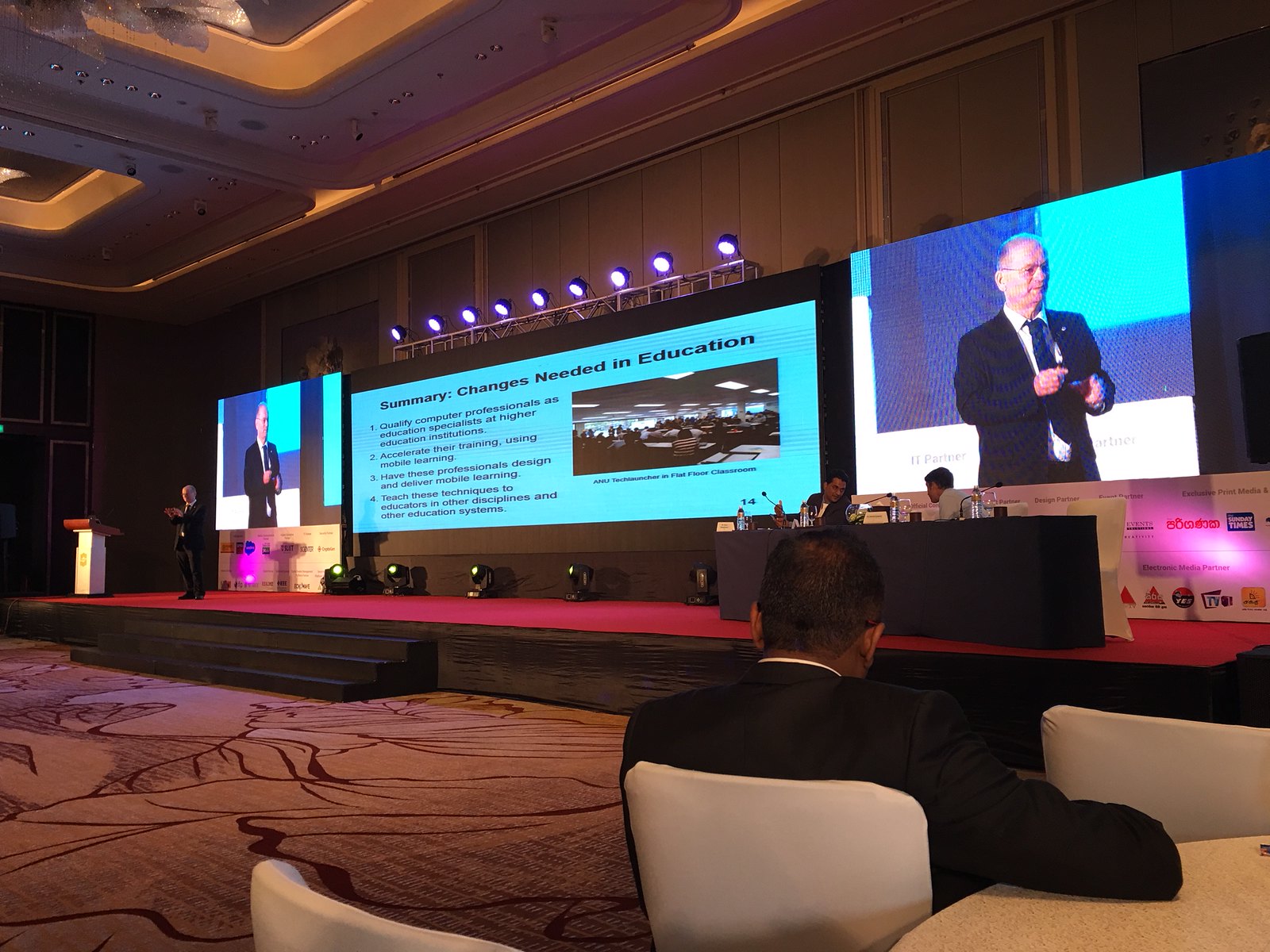Dr Mewburn, raises the issue of the high workloads in academia. The problem with "Less", I suggest, is that there will always be more demands on the time of an effective person, than there are hours in the day to do them, and "Care" can result in being emotionally blackmailed. Being more efficient will not help, as that will just increase the demands on your time. What I suggest is a conscious choice as to what to do, and more importantly, what not to do.
Dr Mewburn, discusses the stresses of attending an international conference on a limited budget. Each year I try to attend one international conference. I mostly have to pay my own airfares, conference fees and accommodation. One way I have found to get the most from this expensive and time consuming experience is to squeeze in another conference, and talks, on the way. There are few direct flights from Australia, so I look for another conference wherever the plane stops. Often conferences are happy to have someone chair a session, or give a talk, to make up for a last minute cancellation.
This year I was invited to speak at the Computer Society of Sri Lanka National IT Conference (NITC 2018).
 Flights were via KL or Singapore,
so I looked for conferences there. I found EduTech Asia 2018 was on and the organizers
responded with a speaking slot, and free registration.
Flights were via KL or Singapore,
so I looked for conferences there. I found EduTech Asia 2018 was on and the organizers
responded with a speaking slot, and free registration.Another way to reduce the stress when traveling for conferences is to use public transport. This may take more time, but imposes a timetable which makes it easier to refuse requests to squeeze extra work into your schedule. One tip is to use overground transport, avoiding the subway. Singapore, HK, and London have very efficient subways, but they also have excellent double deck buses, which provide a view, if you are not in a hurry.
 |
| View from 17th floor UBC Walter Gage Student Residence |
Dr Mewburn, expresses concern over the stress from working in academia. She suggests an emphasis on being "resilient", transfers the problem from the system to the individual, and instead calls for a "better, fairer, more humane system in academia". While I support this, I suggest we need to also train our students, be they destined for academia, or for industry, to be "professional".
The academic system is not the only one to exploit its workers. Where you have people who love what they do, there can be a tendency to take advantage of them. I suggest that academics need to consider themselves professionals, and that they are training professionals. A professional looks after not only the interests of their clients, and their employer, but their own interests as well.
For several years I gave lectures to ANU's computer students on "Professional Ethics". This is a compulsory subject for all degree programs accredited by professional bodies. Professionalism is, in part, about the obligations of the individual to their staff. However, it is also about their obligations to themselves. Professionals are required to take time to keep up withe skills, and are obliged not to take on more work than they can do. These obligations are so the professional can do a good job for their client, but a byproduct is to avoid overwork.
Dr Mewburn, voices the dilemma all academics face, where they are encouraged to look after students and engage in activities which impact the wider world, but tend to only be promoted for publishing peer reviewed journal papers. I suggest it is possible to find a comfortable mix. Bogs, videos and book can be sued to promote journal papers. Hopefully we are reaching the point where more than just formal papers will will be counted as serious work output.
What I do each year is choose a theme, or a theme chooses me. I plan to prepare a paper on the theme for formal presentation at a conference. Along the way there might also be a book. Also I will present to parliamentary committees on the topic, and talk to the media. What I always do is to make a point of explaining to my institution how this helps promote their courses.
Sometimes these themes just evolve. Last year it was "Blended Learning for the Indo-Pacific", presented in Canberra to my professional body, then in Colombo, a formal paper at an international conference in Woolongong (and to be repeated at USyd on Monday). Along the way I presented a version to a Senate committee (the previous witness was the ANU VC, who asked "Tom what are you doing here?"). It happened then that DFAT were looking for ideas, so I pitched my paper to them, slightly modified, for $250,000 in funding. Along the way I spent a delightful few days in Singapore, at a conference meeting up with acquaintances from around the world.
This year's theme will probably be about peer assessment for blended learning of professional skills. I offered to help with professional skills, and now find myself with 60 masters students to teach in ANU's new flexible building. I started by blogging what I might teach, now I am finalizing the formal learning design. Next I will teach. That will likely result in a conference paper, perhaps a book, later in the year, or next. As professional skills and blended learning are hot topics, there will likely be conference invitations and media interest.
ps: The inspiration for my Higher Education Whisperer blog, came from Dr Mewburn's Thesis Whisperer.
No comments:
Post a Comment